Are Rwanda’s milk bars running dry?
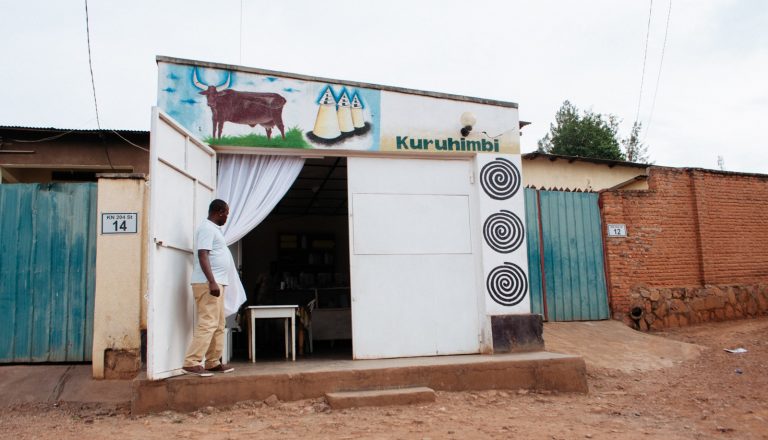
Michael Sommers
How climate change (droughts), Covid-19 and competition (“Milk Zones”) have impacted the traditional Rwandan milk bar and the importance of milk in Rwanda’s society, culture and economy.
Are Rwanda’s Milk Bars running dry?
When it comes to Rwanda’s national drink, Glory Iribagiza isn’t afraid to give her frank opinion. “I prefer inshyushyu because it’s very tasty, especially with cookies,” confesses the Kigali-based journalist, while admitting “most people like ikivuguto, which is cooling, especially when it’s sunny.”
A Cultural Institution
Inshyushyu, raw milk that’s boiled and served piping hot, and ikivuguto, chilled fermented milk frequently tamed with honey or sugar, are the twin beverages of choice in Rwanda’s traditional milk bars. Adorned with hand-painted signs and bovine insignia, these small indie businesses, exclusive to Rwanda, are popular gathering places. Locals trade news and gossip, as they wind down while upping their protein and calcium intakes.
Rwandans’ predilection for milk is hardly a new fad. For centuries, cattle have been a source of wealth, status, and sustenance. Originally cows were a rare and sacred commodity; it wasn’t until the 1910s that milk began to be commercialized at shops that were the ancestors of the modern-day milk bar.
More recently, as Rwanda sought to recover from the devastating 1994 genocide that killed some 800,000 people (and an estimated 90% of Rwanda’s cattle), the government turned to cows as a solution to poverty and malnutrition. In 2006, President Paul Kagame launched the “Girinka” (“May you have a cow”) program in which needy families received a cow. As a result, milk production boomed. So did Kigali’s milk bars, whose owners purchased the overflow of fresh, country milk, dispensing it to urban transplants nostalgic for the taste of home.
Covid and Climate Change
However, current times have been tough. Milk bars took a hit as a result of Covid-19.
As Iribagiza recounts, stringent measures including lockdowns and enforced closures forced many to lay off workers and shutter their doors, at least temporarily. “The pandemic impacted milk bars’ earnings, but also those of suppliers and customers.”
Fortunately, milk bars are more than just bars. “Many people come with 2-litre or 5-litre containers to fill up and take home,” explains Iribagiza. As such, the pivot to take-out business came naturally.
Less natural are the extreme weather conditions battering much of Africa, including Rwanda, as a result of climate change. Extended droughts have made food and water scarce for both humans and livestock. Diminished milk supplies have led to higher prices. “This is the first time, to my knowledge, that we have such a big milk shortage,” confesses Iribagiza. “Industrialized milk is now for the wealthy, sold for three times as much as milk bar milk.”
Rival Milk Zones
In Rwanda, industrialized milk is synonymous with Inyange, the largest producer of pasteurized milk. Aside from selling packaged milk to retailers, Inyange has opened 76 “Milk Zones”. With Instagrammable baby-blue facades and sterilized (if sterile) interiors, these franchises have gained an upper hand in the milk bar wars. Better equipped to refrigerate and store large quantities of milk for days, they’re also air-conditioned.
Meanwhile, Rwanda’s recent milk shortages have unexpectedly provided traditional milk bar customers with an advantage. “Because it’s sold for three times as much as milk bar milk, industrialized milk is now for the wealthy,” explains Iribagiza. “Traditional milk bars have the same shortages, but they haven’t raised prices.”
Competition, Covid, and climate change aside, Iribagiza predicts traditional milk bars will survive. “Many bars specialize in making the best-fermented milk. Others are kind to customers. The most important thing worth preserving is fresh milk. It tastes different from organic and pasteurized. It’s also more nutritious.”
See also
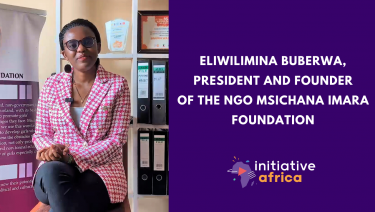
Eliwilimina Buberwa, president and founder of the NGO Msichana Imara Foundation
In this interview, Initiative Africa speaks with Eliwilimina Buberwa, founder of the NGO Msichana Imara Foundation, which is dedicated to combating period poverty in Tanzania. Drawing on her own experience, she explains how the lack of information, products, and adequate infrastructure still deprives millions of young girls of their right to education. This is a crucial discussion on a public health, gender equality, and social justice issue at the heart of rural communities. Journalist: Alexandra Vépierre
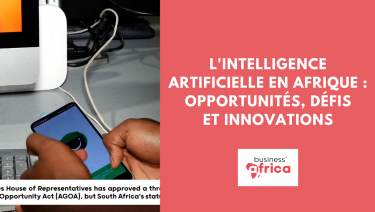
Artificial intelligence in Africa: opportunities, challenges and innovations
Artificial intelligence is reshaping the global economy — and Africa is no exception. In Cameroon, the startup Comparo is helping small and medium-sized businesses stand out in the e-commerce space, thanks to accessible AI-driven tools that streamline web creation and customer targeting. But beyond the promise, AI raises serious concerns: data control, technological dependency, social divides… This report dives into the local innovations and global challenges shaping Africa’s digital transition.
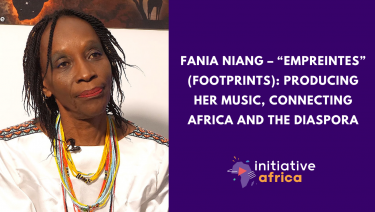
Fania Niang – “Empreintes” (Footprints): producing her music, connecting Africa and the diaspora
With Empreintes, her fifth album, Fania Niang presents an intimate and socially engaged body of work, recorded in Dakar and self-produced for the first time in her career. In this interview, she reflects on her journey between Africa, Europe and the United States, the challenges of independent production, and the musical connection she built with Senegalese musicians who have transcended cultural boundaries. She also shares her perspective on today’s African music scene, the dialogue between diaspora artists and the continent, and her desire to give back by sharing knowledge, experience and creative vision. A powerful conversation about music as memory, identity and transmission. Journalist: Laurence Soustras
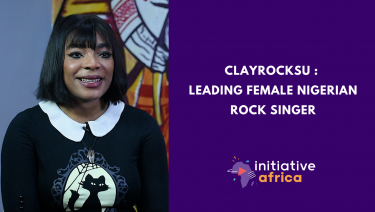
CLAYROCKSU, leading female Nigerian rock singer
She grew up singing in church and ended up fronting Nigeria’s rock scene. In this exclusive interview, Clayrocksu opens up about what it means to be a rock artist and a woman in a country dominated by Afrobeats. From her early days mixing Igbo and English lyrics, to building a community of Afro-rock musicians, she shares how music became a form of rebellion, healing, and identity. Between faith, family, and fire, her voice carries a message for all the misfits who refuse to fit in. Journalist: Sharafa